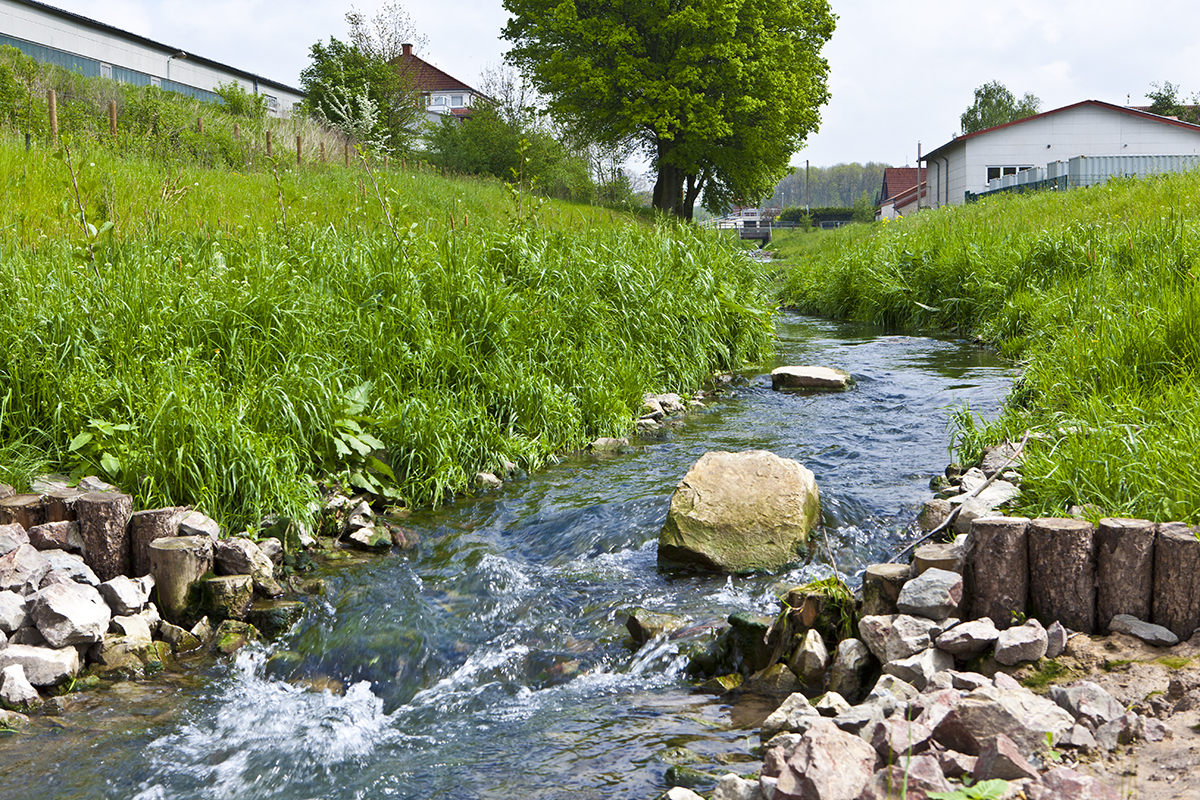Communication strategy to increase understanding and support on flood prevention
Communication on flood prevention potential of Heerener Mühlback to convince stakeholders
Source: Anke Althoff, Lippeverband
From 2007 to 2010, severe flash floods occurred in different cities in the Emscher- and Lipperegion due to extreme rainfall events. In the public discussion that followed, the question of responsibility came up. Citizens formulated the demand that the public bodies, particularly the municipalities and water boards, had to guarantee a full protection against future flood events. In further developing this demand, it quickly became clear that this would not be possible without paying a high price. Questions arose like: How high should the dikes be, and how big should the waste water sewers be dimensioned to protect people against any extreme event? How much energy and money would that cost? This would speak against all efforts regarding climate protection and reducing greenhouse gas emissions. A communication strategy was thus necessary to change citizen perspectives and develop support for a reasonable solution. The goals was to convince the population that there is no solution by public authorities which can offer 100% protection against the impacts of climate change, and that there will always remain a degree of personal responsibility. This was the starting point when people began to ask the question: What can I do?
The fact that people were concerned about their wellbeing supported the communication strategy. Without the extreme rainfall events. It would have been much more difficult to come into a mutual dialogue with people about possible approaches on how to face the impacts of climate change. Talking about climate, there is no “polluter-pays-principle”, but rather open discussions about “who can do what” were needed.
Communication strategies built around stories intended to scare the audience are not successful. Neither policy makers nor people like to act on the assumption that their world will be flooded and damaged. However, informing citizens in an open and factual way, complemented by highlighting the potential positive impacts of adaptation measures can be a strong and successful approach. Here, highlighting the benefits of an enhanced living quality, improved recreation facilities and a sound ecosystem convinced stakeholders and citizens to start taking acting themselves and support the planned EbA measures.

